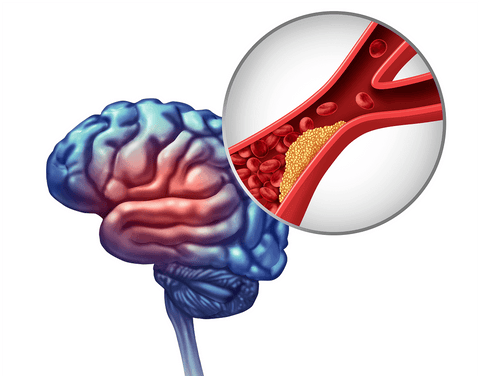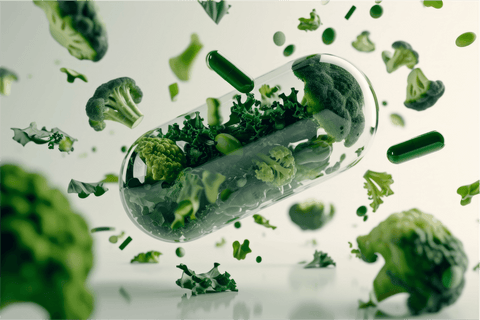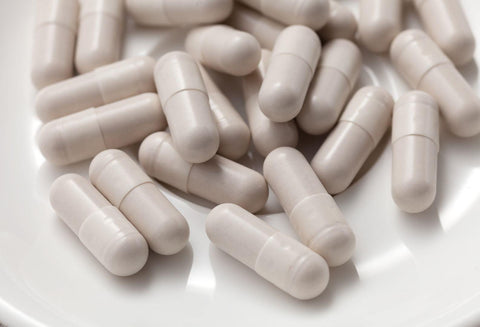How Nicotinamide Mononucleotide (NMN) Supports Spermatogenic Function in Diabetic Mice

Key Takeaways
-
NMN Boosts Sperm Production: Research shows Nicotinamide Mononucleotide (NMN) helps increase sperm count, improve sperm quality, and restore testicular health in diabetic mice by enhancing energy production.
-
NMN Protects Testicular Cells: NMN reduces oxidative stress, prevents sperm cell death, and strengthens Sertoli cells, which are crucial for sperm growth and survival.
-
NMN Shows Potential for Male Fertility: While studies focus on diabetic mice, NMN’s benefits in boosting NAD+ levels suggest it could be a future treatment for men with diabetes-related infertility.
Understanding the Impact of Diabetes on Male Fertility
Diabetes can affect the male reproductive system and lower sperm production and quality. High blood sugar damages the cells that help sperm grow. This leads to hormonal imbalance, stress on the body, and less energy in the testes, making it harder for diabetic men to have children.
How Diabetes Disrupts Testicular Function
Diabetes harms the testes and lowers sperm production and quality by:
-
Causing oxidative stress, which damages sperm and testicular cells.
-
Lowering testosterone levels, which impacts sperm development.
-
It lowers energy levels, making it harder for sperm to develop and work properly.
The Connection Between Diabetes and Infertility
Men with diabetes may have fewer sperm, slow-moving sperm, and more sperm DNA damage. These problems make it harder to have children. Diabetes can also cause the testicles to shrink, which lowers sperm production.
Why Spermatogenic Dysfunction Occurs in Diabetes
Sertoli cells help sperm grow by providing nutrients, but diabetes makes them work poorly. This causes problems with energy use, more cell death, and weaker testicles. As a result, fewer sperm are made, and the ones that do form may not be healthy.
NMN as a Potential Solution
Research shows that Nicotinamide Mononucleotide (NMN) may help improve sperm health in men with diabetes by:
-
Enhancing energy production in testicular cells.
-
Reducing oxidative stress, which protects sperm from damage.
-
Boosting sperm number, movement, and overall fertility.
How Nicotinamide Mononucleotide (NMN) Improves Spermatogenesis
Nicotinamide Mononucleotide (NMN) is a molecule that helps cells make energy by boosting NAD+ levels. Studies show that NMN may protect testicular cells and improve sperm production, especially in diabetic mice.
Increases Sperm Count and Quality
Diabetic mice given NMN had more sperm and fewer defects than those without treatment. Their sperm moved better and had a healthier shape, showing that NMN may help with reproductive health.
Enhances Testicular Weight and Structure
Diabetes can make the testicles shrink, reducing sperm production. NMN supplements helped bring testis size back to normal, strengthened sperm-producing structures, and increased the number of sperm cells.
Reduces Spermatogenic Cell Apoptosis
Diabetes increases cell death in sperm-producing cells, but NMN helps prevent this by:
-
Boosting Bcl-2, a protein that helps cells survive.
-
Lowering Bax, a protein that promotes apoptosis.
-
Maintaining a healthy balance of sperm cell survival and death.
Boosts Glycolysis in Sertoli Cells
Sertoli cells provide energy for sperm development by breaking down glucose. NMN increases the activity of enzymes like HK2, PKM2, and LDHA, which help convert glucose into fuel for sperm. This improved energy production supports healthy sperm growth.
Order your NMN Supplements today and start your healthy aging journey.
The Role of Sertoli Cells in Spermatogenic Function
Sertoli cells act as "nurse cells" for sperm by providing nutrients and energy. Diabetes weakens these cells, reducing their ability to support sperm development. NMN can restore their function by improving energy use and reducing damage.
How Diabetes Impairs Sertoli Cell Function
Diabetes harms Sertoli cells by lowering their energy production, reducing their ability to feed sperm, and increasing oxidative stress. Without enough support, sperm struggle to develop properly.
How NMN Restores Sertoli Cell Function
NMN helps Sertoli cells by improving their ability to produce energy, reducing stress-related damage, and creating a healthier environment in the testis. This leads to stronger, more viable sperm.
Nicotinamide Mononucleotide (NMN) and Testicular Cell Signaling Pathways
Testicular cells use signals to control sperm production and keep cells healthy. Diabetes disrupts these signals, causing more sperm cell death and weaker energy use. NMN helps fix these issues, supporting better testicular function.
NMN’s Influence on Apoptosis-Related Genes
Diabetes increases the expression of Bax, a gene that causes cell death while reducing Bcl-2, a gene that helps cells survive. NMN reverses this imbalance, reducing sperm cell loss and improving sperm survival.
NMN’s Effect on Glycolysis-Related Proteins
NMN helps sperm grow by improving glycolysis, the process that gives energy to testicular cells. It does this by:
-
Increasing HK2, which helps break down glucose for energy.
-
Enhancing PKM2 activity, ensuring sperm cells receive enough ATP.
-
Promoting LDHA function, which converts glucose into a usable energy source for sperm.
Future Potential of NMN for Male Fertility Treatments
While these findings are based on animal studies, NMN could also help improve human male fertility. Since NMN is already being studied for anti-aging and metabolic health, researchers are now exploring its potential role in reproductive health.
Could NMN Be Used for Human Infertility?
NMN may help increase NAD+ levels, which are important for sperm production. If studies show it works in humans, NMN could be a treatment for men with infertility caused by diabetes.
Next Steps in NMN Research
To determine if NMN is a viable treatment for male infertility, researchers need to:
-
Conduct human clinical trials to confirm its safety and effectiveness.
-
Identify the correct dosage for improving sperm health.
-
Study the long-term effects of NMN supplementation on sperm production.
FAQs
How does NMN affect mice?
NMN boosts energy in mice by increasing NAD+ levels. It helps improve metabolism, slows aging, and supports organ health. Studies show it can also improve testicular function in diabetic mice.
How does NMN help diabetes?
NMN helps control blood sugar by improving insulin sensitivity and boosting energy production. It reduces stress on cells and supports better metabolism, which may help people with diabetes.
Does NMN help fertility?
Yes, NMN may improve fertility by protecting sperm cells and increasing energy in the testes. Research on diabetic mice shows NMN boosts sperm count, quality, and movement.
Does NMN increase sperm?
Studies suggest NMN can increase sperm count and quality by protecting testicular cells and reducing stress on sperm. It also helps sperm move better, improving fertility.
What are the downsides of NMN?
NMN is usually safe but may cause mild side effects like nausea, headaches, or stomach discomfort. Long-term effects are still being studied, and more human research is needed.
Conclusion
Nicotinamide Mononucleotide (NMN) may help improve male fertility, especially for men with diabetes. It boosts energy, reduces cell damage, and supports healthy sperm production. While more studies are needed to confirm its effects in humans, NMN is becoming popular for its health benefits. If you want to support your well-being, Just Glow offers high-quality NMN supplements to help you take a step toward better health.
In This Blog
Summary
Diabetes doesn’t just affect blood sugar—it can also lower male fertility. Many men with diabetes have fewer sperm, poor sperm quality, and testicular damage, making it harder to have children. Scientists are studying ways to fix this, and one possible solution is Nicotinamide Mononucleotide (NMN). Research shows that NMN may help the testes work better by increasing energy, reducing cell damage, and improving sperm health. But how does it work, and what do studies say? This article explains how NMN helps sperm production in diabetic mice and what it could mean for future fertility treatments.






